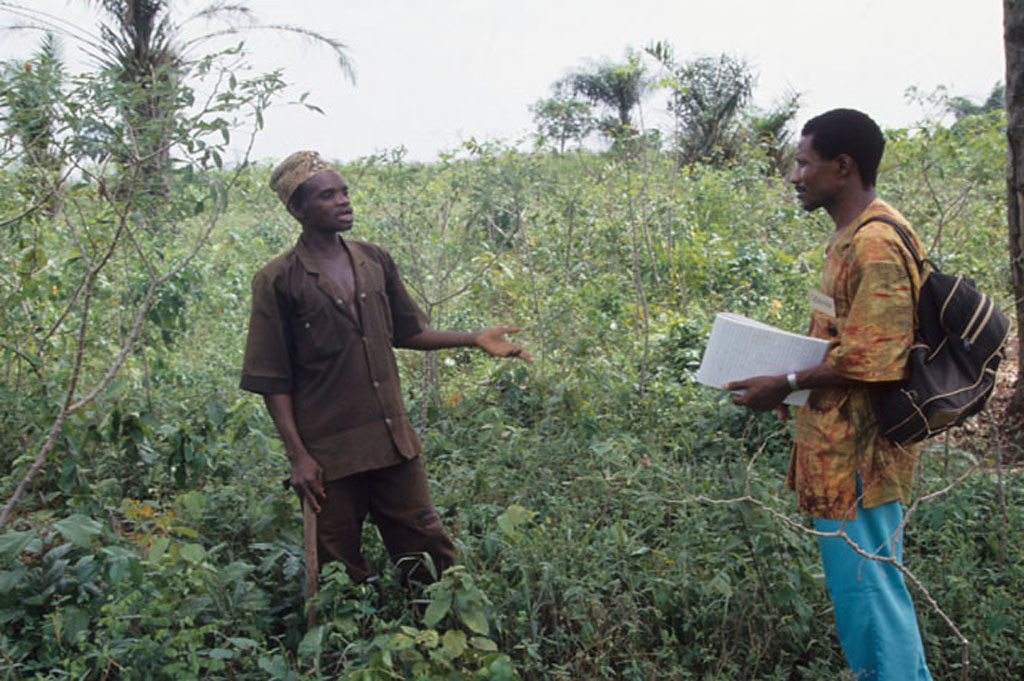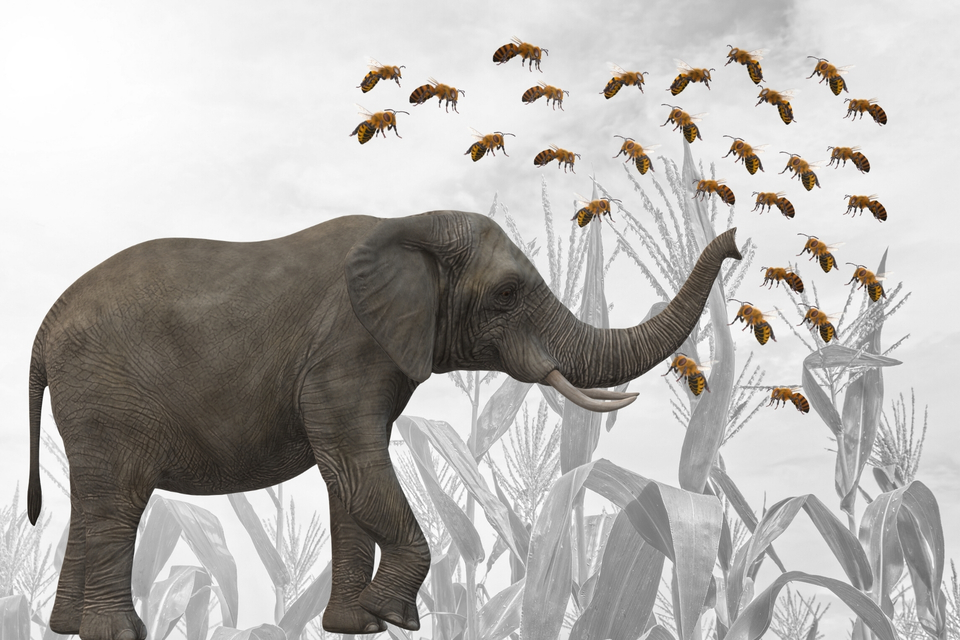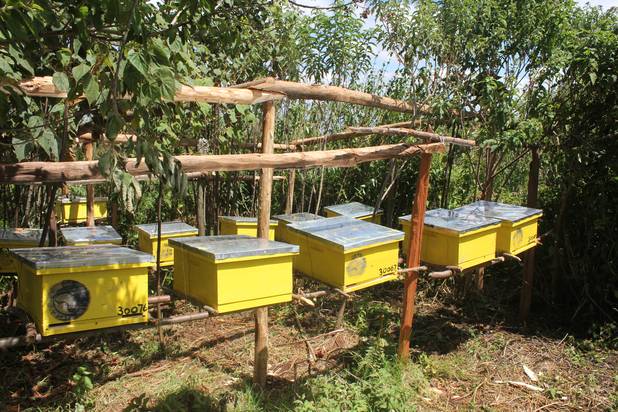
By George Munene
From parastatals to international research institutions and multinational companies, here’s a roundup of agriculture jobs for the final week of October 2022:
1
Position: Animal Inseminator
Location: Mbaga Siaya County
Recruiter / Employer: Avepo Smart Farm
Responsibilities:
- Ability to carry out field extension services
- Good communication skills
- Licensed motorbike rider
- Ability to mobilize and train a community
Education/ Work Experience Requirements:
- Certificate or Diploma in Animal Health or Animal Insemination (AI) from a recognized institution
- 3 years of hands-on experience
How to apply: BrighterMonday
2
Position: Household Economic Strengthening Advisor
Location: Turkana
Recruiter / Employer: Save the Children International Kenya
Contract: 12 Months
Responsibilities:
- The post holder will provide technical implementation and support of all livelihoods or household economic strengthening work at field level.
- Develop, lead, provide inputs for research and learning, monitor and evaluate the livelihoods aspects of the NAWIRI project.
- Coordinate and network with NAWIRI consortium partners led by Mercy Corps, County departments responsible for agriculture, livestock, nutrition, trade, and other NGOs.
- Lead on all household economic strengthening elements of the project and reports, providing capacity building for the county staff.
- Promote best practices in the livelihoods programmes and contribute to the overall success of the NAWIRI programme.
- Oversee the implementation of livelihoods or household economic strengthening activities in Turkana and /Samburu County.
Education/ Work Experience Requirements:
- Bachelor degree in Agriculture, Social Sciences, Community Development, or other disciplines relevant to rural livelihoods.
- At least 5 years of demonstrated experience designing and implementing livelihoods programmes.
- Excellent understanding of Household Economy Approach (HEA).
- Excellent technical knowledge of policy and practice in the field of livelihoods, crop and livestock production as well as other cross-cutting issues.
- Understanding and experience in implementing nutrition security food security and livelihoods programmes.
- Excellent understanding of system approach to ending persistent acute malnutrition.
- Clear understanding of and proactive approach to nutrition resilience, hunger, and food security issues in Kenya, particularly in the context of Turkana and Samburu counties.
- Understanding and experience in child rights programming.
- Proven representation and advocacy skills.
- Experience with livelihoods programming in arid and semi-arid land (ASAL) settings preferred.
- Experience writing donor reports, especially USAID.
- Strong writing skills, including experience writing capacity statements and position papers.
Related News: Young Timau farmer moves from joblessness to earning Sh100,000 from garlic
Related News: Uasin Gishu farmer earns double from short season crops after quitting job
How to apply: Please attach a copy of your CV and cover letter with your application, and include details of your current remuneration and salary expectations.
We need to keep children safe so our selection process, which includes rigorous background checks, reflects our commitment to protecting children from abuse. All employees are expected to carry out their duties in accordance with our global anti-harassment policy. A copy of the full role profile can be found at https://kenya.savethechildren.net/careers
Deadline: 5 Nov 2022 – 02:59 EAT
3
Position: International Livestock Research Institute (ILRI) Research Officer 1– Gender
Location: Nairobi, Kenya
Recruiter / Employer: International Livestock Research Institute (ILRI)
Contract: 3-year contract, renewable subject to satisfactory performance and availability of funding.
About the Role: Coordinate the design and implementation of the gender components of various projects and provide research support to the Gender Team at ILRI.
Tasks:
- Contribute to the designing of studies on gender and livestock, especially qualitative work
- Plan and lead organization of fieldwork logistics in ILRI target countries,
- Carry out field research by utilising a variety of qualitative tools and methods
- Support survey implementation, data collection, data cleaning, and analysis on topics involving gender issues in livestock value chains
- Contribute to the development of approaches and tools for integrating gender within ILRI
- Conduct literature review focused on gender and agriculture/livestock
- Contribute to the reporting and communication (using a variety of channels) of research on gender and livestock
- Contribute to the preparation of draft peer-reviewed articles, research reports, briefs, blog posts, and other communication outputs/products
- Contribute to Capacity Development activities
- Supervise temporary staff
Education/ Work Experience Requirements:
- Master’s degree in development studies, economics, research methods, social sciences, or related field preferably in agriculture or rural development.
- At least three years of experience including experience working in Research and Development projects with a focus on gender, possibly within livestock systems.
- Experience in leading fieldwork activities
- Experience with analysis packages such as Nvivo. Excellent data management and analysis skills.
- Experience in producing project reports, training manuals, and peer-reviewed publications
- Proficiency in the use of Microsoft Office Suite packages, as well as the ability to develop databases and prepare required documentation from them.
- Willingness to travel frequently often to rural areas and spend time in the field
- Ability to write clear and concise scientific documents (publication record is an added advantage)
- Light vehicle driving permit is an added advantage
- Publication record is preferred
- Strong analytical and report-writing skills
How to apply: Send a cover letter and CV expressing what you can bring to the job, an example of recent (co-)authored research output with specification of the candidate’s contributions, and the names and addresses (including telephone and email) of three referees who are knowledgeable about the candidate’s professional qualifications and work experience to the Director, People and Organizational Development through ILRI’s recruitment portal by clicking on http://ilri.simplicant.com/ on or before 7 November 2022. The position title and reference number REF: PIL/ 675/2022 should be clearly marked on the subject line of the cover letter.
Due to the volume of applications, only shortlisted candidates will be contacted.
4
Position: Kenya Production Coordinator-- One Acre Fund
Location: Sagana, Kenya
Recruiter / Employer: One Acre Fund
About the Role: Reporting to the Quality Assurance Specialist, the Production Coordinator will make sure that the production procedures of Food Safety Management System (across the entire production line) are followed and all quality standards controls are implemented and running.
Responsibilities:
- To ensure good manufacturing practices during production.
- Implement the daily, weekly, monthly, and annual production plans and schedules.
- Ensure hygienic conditions of both the factory & workers are maintained.
- Manage routine implementation of all company procedures in the factory.
- Coordinate with the quality assurance department on processing material movements, sampling, personnel and equipment swabs analysis.
- Implement all Safety, Health, Environment, and Quality (SHEQ) requirements in the shift.
- Ensure proper segregation of material on process based on Lots, grades, and styles in all steps as required. Ensure all sorted kernels are within the international standard for grading, packing, and finalized within 24 hours after cracking.
- Collaborate with the engineering team on repairs and attendance of machines and equipment.
- Manage factory production employees.
- Train operators and sorters in macadamia processing.
- Handle any employee grievances before communicating the grievances to HR.
- Periodically appraise and develop all production employees on macadamia processing.
- Implement Food Safety Management System during the processing
- Make periodical management reports on all macadamia production operations of the factory.
Education/ Work Experience Requirements:
- Bachelor's Degree in food science and technology or Food Technology from an accredited institution.
- At least 3 years of experience in the Food processing industry. (biased to Macadamia production).
- Has been in management for at least 1 year.
- Knowledge in HACCP & G.M.P.
- Commitment to teamwork
- Teach, enhance current processes and develop new operations
- Passionate about serving smallholder farmers
- Language: English, Kiswahili
How to apply: BrighterMonday
Application Deadline: 3rd December 2022
Related News: Graduate who dumped a commission sales job for passion fruit farming earns Sh60,000 a month
5
Position: Poultry Farm Officer
Location: Kitinda, Bungoma County
Recruiter / Employer: Kitinda Jacaranda SHG
Contract: Internship opportunity that may lead to employment
Education/ Work Experience Requirements:
- DiplomaDiploma in General Agriculture
- Skills in poultry farming
- Age between 22yrs – 25yrs
- Keen eye on details
- Excellent communication skills
- Knowledge of bookkeeping & inventories filling
How to apply: BrighterMonday
Write comment (0 Comments)
















